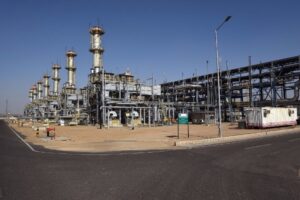Morgan Stanley in a research report, Covid accelerated the transformation of the energy industry in India – 19 outbreak, had a profound impact on India’s economy, including the new $140 billion in the eight years of natural gas direct investment and employment growth improves the highest 300 basis points, the current account deficit is 40 – $4.7 billion per year on average.
“Covid – 19 outbreak also for consumer and industrial companies reduce costs as much as 25% of the energy on average, 10% global oil demand growth slowed down, and make the gasoline-powered cars in India PV market share increase in sales nearly doubled,” Morgan Stanley said in a report, “and, more importantly, with natural gas as fuel of choice for people, we think it will reshape consumer habits, to 2025 the demand for natural gas compound annual growth rate to 8%.”

The investment bank expects natural gas to account for about 10 per cent of India’s primary energy supply by 2025, up from 6 per cent today, and renewables to 6 per cent, up from 3.6 per cent now.
Gas prices for Asian consumers have shrunk the most as the global glut has deepened. India has been the biggest beneficiary, as consumer prices have fallen by 25% and remain structurally low while natural gas infrastructure has doubled and renewable energy has made natural gas more prominent in the fuel mix.

“Stricter pollution standards and supportive regulatory policies will facilitate India’s energy transition. Because industry and the power sector consider natural gas cheap, easy to use, and environmental policy. Morgan Stanley adds that individual demand for natural gas for cooking and travel will increase by 2025 as last-mile infrastructure doubles.
Potential beneficiaries of switching to Gas include midstream pipelines and infrastructure owners such as Gujarat Gas. At the same time, auto makers like Maruti are pushing for hybrid gas, fuel retailers, infrastructure builders and ultimately industrial consumers are driving demand.
For now, most refineries are consolidating into downstream chemicals, although there may be headwinds for refineries. In addition, fuel retailers offer integrated energy solutions by offering consumers the choice of filling tanks for gasoline, diesel, natural gas, or rechargeable batteries.
